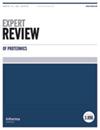Proteomic approaches for untangling pharmacological targets in acute myelogenous leukemia
IF 3.8
3区 生物学
Q1 BIOCHEMICAL RESEARCH METHODS
引用次数: 0
Abstract
Acute myelogenous leukemia (AML) is a highly malignant disease of the blood and bone marrow [1]. A block in differentiation in normal hematopoiesis leads to accumulation of immature cells that compromise normal bone marrow function, resulting in severe bone marrow failure [1]. The disease has a highly malignant and aggressive course, and without treatment, the disease will usually be fatal within weeks to months. In contrast to breakthroughs in treating other cancers, the progress of therapy in AML has been slow overall, although new drugs have recently entered the field [2]. Furthermore, AML represents a various disease spectrum, reflected by a myriad of cytogenetic abnormalities and genetic mutations. Although well recognized and highly predictive, they do not fully capture the degree of heterogeneities manifested clinically. Disease heterogeneity resulting from variability in leukemic cell maturation state, a large diversity of genetic aberrations among patients, and the existence of multiple disease clones within a single patient have been extensively characterized. However, despite the extensive adoption of genomic approaches in cancer research, it is widely recognized that genomics alone is insufficient to provide an accurate picture of all cellular changes and dynamic states. In contrast, mass spectrometry (MS)-based proteomics has the potential to untangle the intracellular specter of intracellular proteins and hence complement limitations of genomic approaches, advancing the discovery of a potential therapeutic and druggable protein for improving personalized treatments in AML.蛋白质组学方法解结急性髓性白血病的药理学靶点
急性髓性白血病(Acute myelelogenous leukemia, AML)是一种高度恶性的血液和骨髓疾病[1]。正常造血分化受阻导致未成熟细胞的积累,损害正常骨髓功能,导致严重的骨髓衰竭[1]。这种疾病具有高度恶性和侵袭性,如果不进行治疗,这种疾病通常会在几周到几个月内致命。与治疗其他癌症的突破相比,AML的治疗进展总体缓慢,尽管最近有新药进入该领域[2]。此外,AML代表了多种疾病谱系,反映了无数的细胞遗传学异常和基因突变。虽然得到了很好的认可和高度的预测,但它们并不能完全反映临床表现的异质性程度。由于白血病细胞成熟状态的可变性、患者之间遗传畸变的巨大多样性以及单个患者体内存在多个疾病克隆而导致的疾病异质性已被广泛表征。然而,尽管基因组学方法在癌症研究中被广泛采用,但人们普遍认为,仅靠基因组学不足以提供所有细胞变化和动态状态的准确图像。相比之下,基于质谱(MS)的蛋白质组学有可能解开细胞内蛋白质的细胞内阴影,从而弥补基因组方法的局限性,促进发现潜在的治疗性和可药物性蛋白质,以改善AML的个性化治疗。
本文章由计算机程序翻译,如有差异,请以英文原文为准。
求助全文
约1分钟内获得全文
求助全文
来源期刊

Expert Review of Proteomics
生物-生化研究方法
CiteScore
7.60
自引率
0.00%
发文量
20
审稿时长
6-12 weeks
期刊介绍:
Expert Review of Proteomics (ISSN 1478-9450) seeks to collect together technologies, methods and discoveries from the field of proteomics to advance scientific understanding of the many varied roles protein expression plays in human health and disease.
The journal coverage includes, but is not limited to, overviews of specific technological advances in the development of protein arrays, interaction maps, data archives and biological assays, performance of new technologies and prospects for future drug discovery.
The journal adopts the unique Expert Review article format, offering a complete overview of current thinking in a key technology area, research or clinical practice, augmented by the following sections:
Expert Opinion - a personal view on the most effective or promising strategies and a clear perspective of future prospects within a realistic timescale
Article highlights - an executive summary cutting to the author''s most critical points.
 求助内容:
求助内容: 应助结果提醒方式:
应助结果提醒方式:


